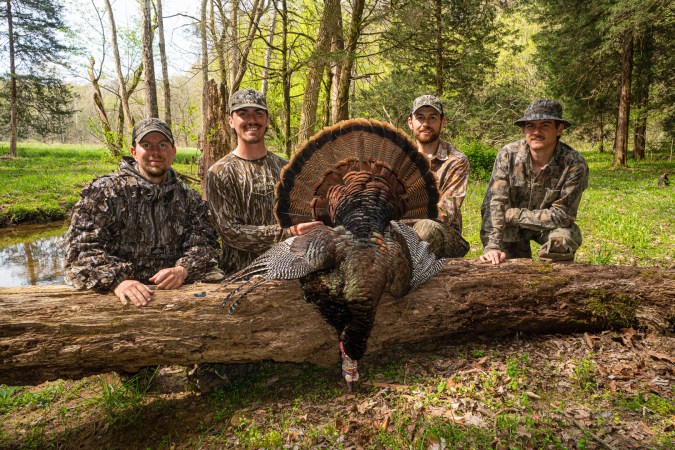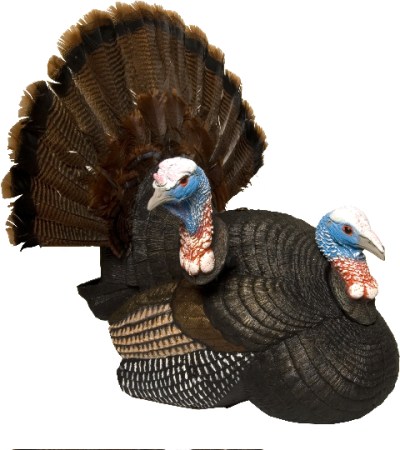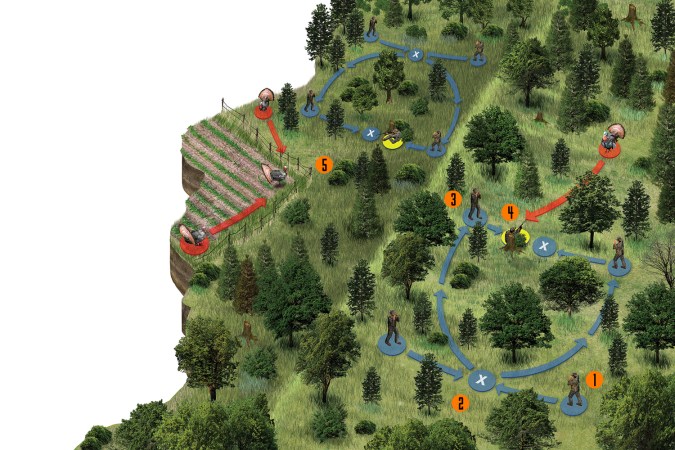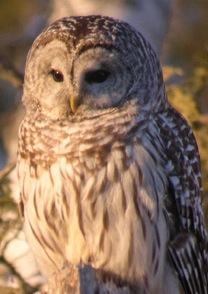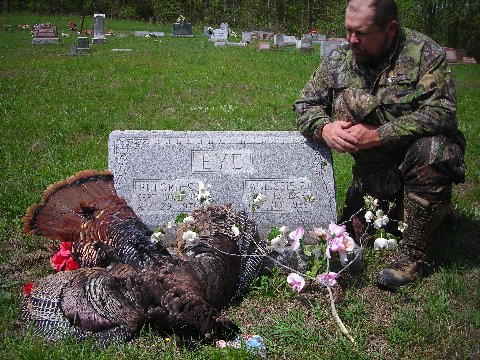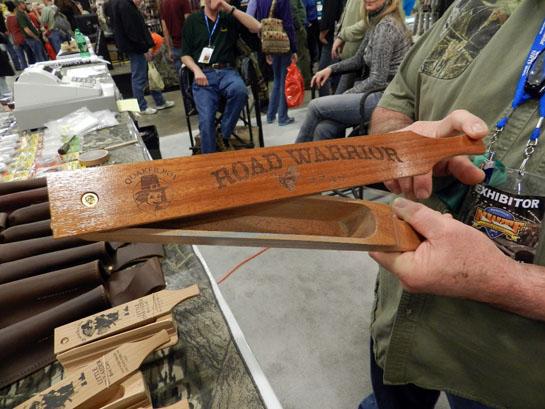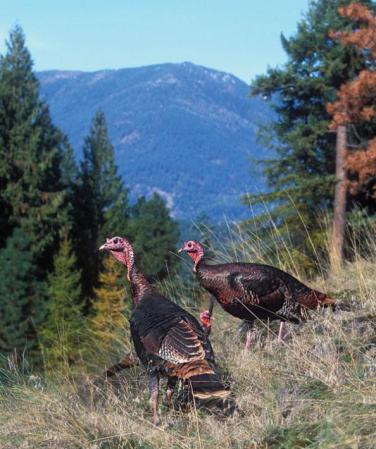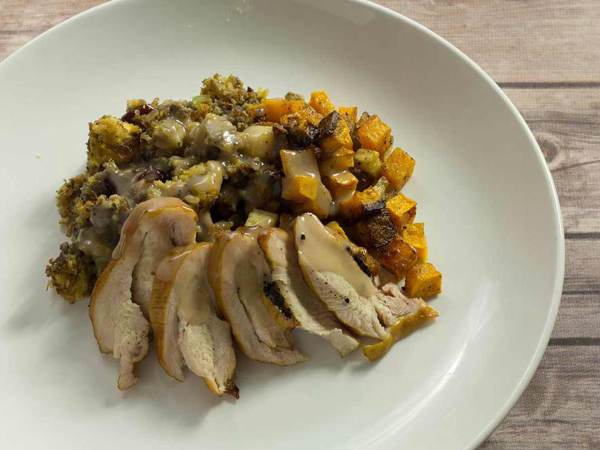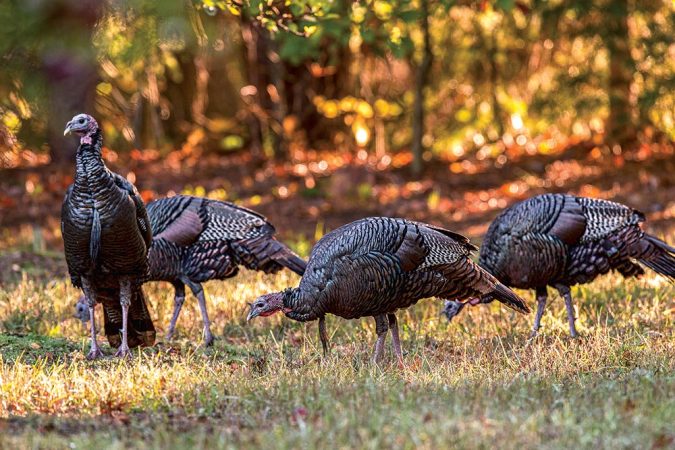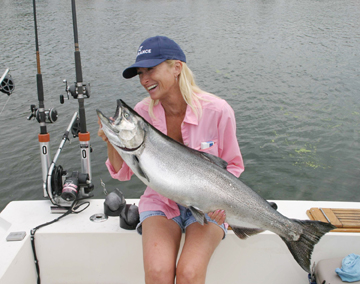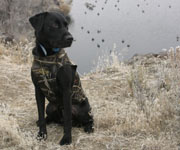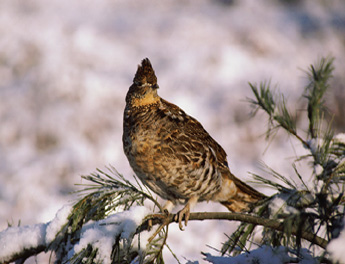We can talk turkey pretty fluently. A practiced hunter can yelp hen love notes, cutt flirtatiously, purr as if a gobbler’s soothing voice is making a hen feel all warm and fuzzy and even gobble to pick a fight with a dominant tom. But while we can do all that, we really have no idea what turkeys are saying back to us. So when we hear a tom gobble, we often just have to hope he’s saying, “Here I come.”
Or do we?
David Hale, one of the founders of Knight & Hale Game Calls, says he has learned to decipher what gobblers are squawking about. This ability, he says, helps him decide what tactic to use on each individual bird. Hale, who has bagged gobblers in nearly half the 50 states, isn’t a real-life Doctor Dolittle. He uses the context of each situation to determine what a gobbler is saying. To help you do the same, here is Hale’s guide to translating turkey talk.
1 You call to a gobbler on the roost, and he gobbles repeatedly while you’re calling.
That’s simple: He’s interested and thinks you’re a hen. The chances are high that he’ll come to your calls.
2 A gobbler answers every call you make, but he won’t come any closer to you.
Either there’s an obstacle between you and the tom that he will not cross, or he’s in an open field or on the top of a ridge from which he can see a long way. If it’s the latter, be patient, lessen your calling and you may get him to come in to you in an hour or two. Don’t get closer to him; if you’ve set up properly, you’re as close as you need to be. However, if there’s a fence or stream between you, you’ll have to move to the other side of it. Once the obstacle is out of his way, the tom should come in.
3 A tom answers your call immediately from the ground, then goes the other way.
Either he already has a hen with him or he’s heading toward his strut zone and telling you to meet him there. In any case, he’ll be a tough one to bag, even though his response shows he’s accepted that you’re a hen. You’ll have to pattern this tom–figure out what he’s doing, and try to head him off.
4 A gobbler responds to your calling but stops answering when you get close.
You’re hearing from a subordinate gobbler that is afraid there’s a boss tom with the hen he’s been chatting with. Set up where you were when you heard him last. Be patient and very watchful in this situation. He’s heard you, and if he comes in, he’ll likely come in silently.
5 A gobbler answers your call five or six times but then he just shuts up.
It’s more than likely that a hen slipped in with him. You can either wait to see if he sneaks toward you or collect your gear and go back the way you came. Maybe you’ll catch up with him tomorrow when he’s alone.
6 You’re walking on dry leaves when you hear a tom gobble just out of range.
This turkey has heard the crunching leaves; he thinks you’re a hen and is gobbling in response to your presence. Sit down immediately by the closest object, preferably a wide tree, make a soft yelp and scratch the leaves. That turkey will probably come to you.
7 A turkey gobbles to your hen calls, so you get closer and set up, but you get no more responses from the tom.
He’s probably an older gobbler that expects you to come to him, so he’s just waiting, watching for your arrival. Challenge him with some fighting purrs. If he feels tough, he’ll come to you; if he’s a little yellow, however, he’ll go the other way.
8 A gobbler will answer your crow call but not any of your hen calls.
This gobbler is not the least bit interested in breeding. He is probably a 2-year-old bird that has never bred. You’re going to have a tough day, because the tom is just shock gobbling. Get close and hope that he gets curious.
9 It’s 9 a.m. and you still haven’t heard a single gobble, when suddenly a turkey gobbles intensely to your calling.
It’s possible that someone else might have that gobbler cranked up, but most of the time the tom is gobbling for another reason. For example, while the bird was strutting, a hen may have sneaked off to lay eggs, causing him to start panic gobbling. Set up and begin calling immediately. The gobbler should answer and come looking for you.
10 A tom is gobbling on one ridge and a second is gobbling on another ridge. They seem to be gobbling at each other and don’t seem interested in your hen calls.
Two territorial boss gobblers are challenging one another; they’ll probably be fighting before the morning is over. If you’re interested in them, determine what their likely traveling route is and try to get somewhere between them. In this situation, you might even try gobbling to tick one of them off.
11 You call and listen, and then, 10 seconds later, you hear a yawlping sound.
A subordinate gobbler is strutting to your call and an accompanying jake is making the yawlping call. The gobbler may come in, so don’t shoot that jake, which may come along first.
12 Five or six toms gobble repeatedly from the roost, but only one gobbles after they fly down.
This is a boss gobbler with satellite toms around him. Chances are good that if you’re patient, one of those turkeys will come in. It will likely be a satellite turkey, coming in silently, while the boss goes the other way with hens.
13 A tom gobbles at the seemingly sorry-sounding call of a real hen, but he won’t answer you, even though you’re making perfect hen calls that would win contests.
The gobbler recognizes the call of each hen in his area, so forget about making a perfect call. Imitate the pitiful yelps of the real hen you’ve been hearing. Sometimes the sorriest calling brings in the gobbler.
14 It’s late in the season and gobblers have bunched up. They gobble to your calls, but they stop out of gun range.
You’re dealing with old gobblers. Try to pattern their travel route and get in front of them. Or you can call to them from perhaps 250 yards away and then quickly move 50 yards closer and set up. Don’t call again. This time when they approach to a “safe” distance, they’ll be in range.
15 A tom is on the roost and gobbles about five seconds after your call.
He probably isn’t interested in your calls. He could be shock gobbling, perhaps to a woodpecker or to some sound you can’t hear. Or maybe he’s just gobbling because he feels like it. Either way, this will be a tough turkey to call in. He’s a little too full of himself. Get close, call lightly and then mimic a flydown with your hat or a turkey wing. After that, wait to see if he sneaks over.
16 It’s 8 a.m. at the end of the season and a turkey is still gobbling from the roost. He’s gobbled at everything you’ve said to him, but he hasn’t flown down from the tree yet.
As the season progresses, birds sometimes stay on the roost longer in the morning. Such a gobbler is a tough bird to kill. I like to call sparingly in this situation. If he doesn’t come, you have to muster the determination to walk away from that setup. Come back in two or three hours when he’s already flown down on his own.
17 You’re out in the evening to roost a bird, when you hear a tom gobble aggressively.
He’s looking desperately for a last chance to mate or to at least get the hens to roost near him. His gobbling may turn from an appeal to panic when no hens show up. This tom will be very susceptible the next morning. Decide how you’ll approach the bird at sunrise. If possible, even pick the tree that you’ll set up in front of.
He Said, She Said
Although David Hale is on to something new in deciphering the gobble, it’s still important to understand what a hen is saying. Here’s Hale’s interpretation of various hen calls.
Cluck: “Everything’s okay.”
Yelp: This is a contact sound that says, “I’m over here, and everything seems okay.”
Putt: This is an alarm signal.
Purr: This is a feeding or a curiosity sound. It denotes some contentment.
Kee-kee: “I’m lost. Where are you?”
Cutting: This means the hen is excited.
Assembly call: These yelps that go from low to high, then come back down again, are made by old hens to call their young back together. Hens do this in the morning and after their flocks have been broken up.

